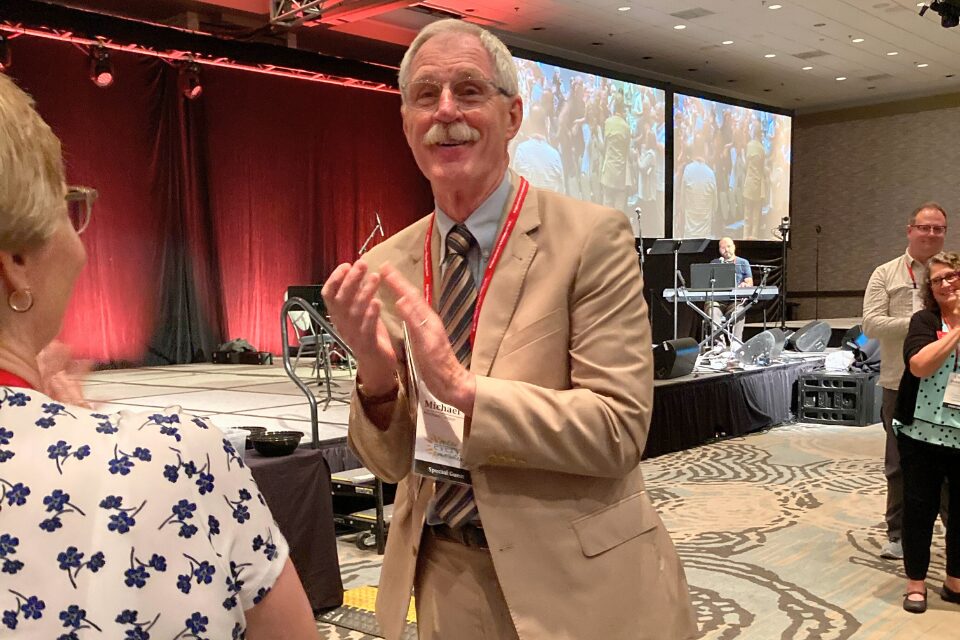Dr. Michael Comer’s gift to the church has been assessing the personality traits of pastoral leaders with curiosity and compassion.
JAMES DEATON
Content Editor
There’s no doubt Dr. Michael Comer has influenced a generation of congregational leaders in the Michigan Conference. As a Ministerial Assessment Specialist (MAS), he played a behind-the-scenes role few know about. He was involved in the psychological and vocational assessment process required of all leaders preparing to serve United Methodist congregations in our state.
Dr. Comer recently retired from this work, which he had been involved in for over 30 years, first with the West Michigan Conference and then with the Michigan Conference. He was honored at the 2023 Michigan Annual Conference during the clergy session for his professional skills and spiritual gifts. This ministry was invaluable in helping to ensure that all persons entering pastoral leadership positions are psychologically and emotionally healthy.
The assessments, clinical interviews, follow-up analyses, and Dr. Comer’s leadership in refining the Michigan Conference’s process over the years have also been critical in protecting congregations and improving their well-being. Appointing well-adjusted pastoral leaders is a baseline for building faith communities of trust and care.
Understanding the Need for Healthy Pastors
The Ministerial Assessment Specialist (MAS) is a role created by the United Methodist General Board of Higher Education and Ministry for all conference boards of ordained ministry (BOMs) to use in evaluating candidates for licensing and ordination. MASs are mental health professionals certified in psychological assessment and trained in psychotherapy and the application of clinical skills to vocational evaluation. Plus, they understand the dynamics of church life and ministry issues as they apply to the selection of pastoral candidates.
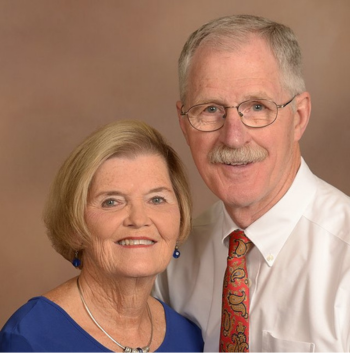
The Michigan Conference employs three MASs on a part-time contract basis. Currently, Dr. Jennifer Hahm, Dr. Diana Ro, and Dr. Kaylin Sanders serve as MASs and will continue the work of psychological assessment following Dr. Comer’s retirement. Their primary responsibility is to interview candidates for licensing and ordination after a battery of tests and the submission of written references and other details. This is separate from the standard background check that looks for serious allegations, misdemeanors, or convictions. (Learn more about the candidacy process by reviewing the resources on this web page.)
After analyzing the data and conducting a clinical interview with the candidate, the MAS prepares a written report that is reviewed by the candidate and then submitted to the district committee on ministry (dCOM). The report gives insight into a candidate’s personality, internal functioning, and relational skills. For example, it illuminates how they may handle pastoral ministry as introverts or as someone who tends to avoid conflict.
At its core, the assessment tool is a vocational evaluation, not a clinical evaluation. It addresses what needs attention to support the person’s career and prepares them for interviews with the ordination boards. The assessment is just one of several factors influencing the BOM’s decision about a candidate. Once the candidacy process resumes, the dCOM or BOM may contact the MAS if they have questions about any concerns they find in the written report.
This required assessment applies to more than just those on the licensing or ordination track. Every person appointed to pastoral authority of a United Methodist congregation — whether clergy or laity, whether ordained or not — must undergo evaluation before beginning ministry.
Other scenarios when a psychological assessment may be requested include transfers from another conference or denomination, elders or deacons returning from a leave of absence (especially medical leave related to psychological or emotional health), referrals from the BOM or a district superintendent, or even self-referrals when someone desires a retest.
Following God’s Call to Ministry
Dr. Michael Comer worked alongside the other MASs and in collaboration with the Michigan Conference Board of Ordained Ministry in refining an assessment process that has worked well for the conference in vetting ministers and congregational leaders and aiding them in their discernment process.
Dr. Comer is a trained psychotherapist and had a private counseling practice for several years before moving into a more specialized role with the Michigan State Police, where he worked alongside law enforcement and first responders as they dealt with crisis situations. This professional work was a gift to his community, but his 30-plus years as an MAS focused on assessing the habits and personality traits of pastoral leaders was his gift to the church.
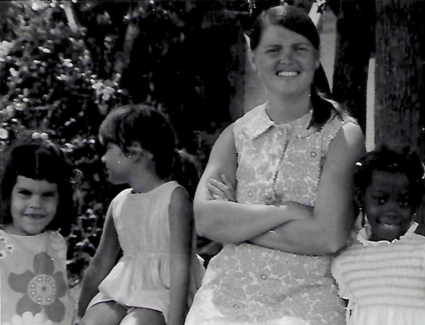
But how do you quantify the qualities needed to become a highly effective pastor? How do you get to the heart of what is going on psychologically and emotionally with a person and then paint a picture with words accurately reflecting who they are? How do you therapeutically give recommendations and ask questions that promote self-understanding, healing, and growth?
Dr. Comer took this ministry seriously and approached it with a professional work ethic shaped by his employment experiences as a psychologist serving the community and his formation as a United Methodist ordained elder.
Michael grew up in Syracuse, NY, and attended First Ward Methodist Episcopal Church, where he went through confirmation classes. As a youth, he was curious about theological matters and would ask questions about God and how Christians come to those conclusions. Mike pursued his bachelor’s degree at Michigan State University (MSU), majoring in American studies, and was actively involved with the Wesley Foundation at University United Methodist Church in East Lansing. At MSU, he took various courses in religion, psychology, and humanities, which taught him how to think and write. Then, before attending Saint Paul School of Theology in Kansas City, MO, Mike and his wife, Anne, whom he met at MSU, served as United Methodist missionaries via the US-2 program teaching English to Spanish-speaking school children on the Caribbean island of St. Croix, working alongside missionaries John and Hazel Stroud.
Ordained an elder in the Central New York Conference in 1975, Mike spent four years in an area of rural upstate New York known for its dairy farms. He was appointed to a two-point charge serving congregations in Cuyler and Fabius. There, he realized the need for mental health care resources, particularly in rural communities.
“These churches were in what I called a mental health wilderness,” says Comer. “There were almost no facilities anywhere. And people kept coming into my office for counseling, wanting psychotherapy. And I’m the kind of person who likes to feel that I know what I’m doing and I’m not over my head. I scrambled to find referral sources for people, which was hard because there weren’t a lot around. So, I decided I needed to learn more about doing psychotherapy.”
Serving as a Psychologist
Researching graduate schools led Dr. Comer in 1978 to Garrett-Evangelical Theological Seminary in Evanston, IL, which had a dual doctoral program with Northwestern University. He graduated in 1983, and his dissertation was on psychological evaluations for United Methodist ministerial candidates using data from the Indiana and Northern Illinois Conferences. He learned much about the evaluation process and even developed an important tool for rating recommendations. He read and rated 1,800 letters of recommendation based on a rating scheme he created for his research.
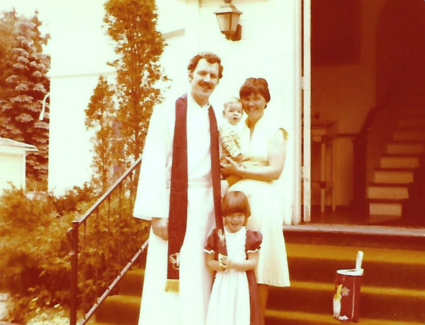
Dr. Comer then discerned his next place of ministry: “My original goal when I first went into this program was to go back and become a minister of counseling at a large church. But what I learned was that there are not very many of those. They’re all in really large churches in big cities. And I knew I did not want to live in a city. My major clinical supervisor in Chicago asked me to go into practice with him, but I knew I did not want to live in Chicago. I loved living in the country when we were at those two rural churches in New York. So, I discovered a pastoral counseling center in Battle Creek.”
He joined the staff of the Samaritan Counseling Center in Battle Creek, MI, run by Rev. Dr. Blaine Rader, but after the center closed, he started a private practice in 1990 in Kalamazoo. Blaine had left the center and moved with his wife, Sharon, who was elected bishop, to Wisconsin. This was also when Michael started evaluating psychological assessments for the West Michigan Conference. He had learned about the supplemental work from Blaine, who also did this for the conference.
Comer then came across a job posting that mentioned five police departments looking to hire a psychologist to work with officers in Kalamazoo County. Always an adventurous spirit, he applied and was hired. Comer kept his private practice, but most of his clients were from the police departments. After twelve years, the Michigan State Police recruited him to work for them as a psychologist in East Lansing. There, he was involved in various responsibilities, including counseling troopers, teaching in their academy and handling their psychological evaluations, coaching troopers in hostage negotiation situations, suspect profiling, organizational management, and departmental conflict resolution. Comer retired after fourteen years in 2016, having counseled law enforcement and first responders for over 26 years.
Caring for People
The Samaritan Counseling Center in Battle Creek was Dr. Comer’s appointment beyond the local church, and he was later appointed as a pastoral counselor in private practice, but his work as an MAS was a direct link to ministry in the church. It’s where he utilized his professional skills and spiritual gifts in this vital role of vetting ministerial candidates.
Having been a pastoral leader himself, Comer understands the ministerial psyche. He knows the dynamics of a local congregation, what crises can happen, and what is required of a leader in that position. As a pastor and a psychologist, he has walked alongside people with addictions and severe mental illness, people who are grieving, and people who have experienced trauma. In all these experiences, he believes God desires health and wholeness for each person.
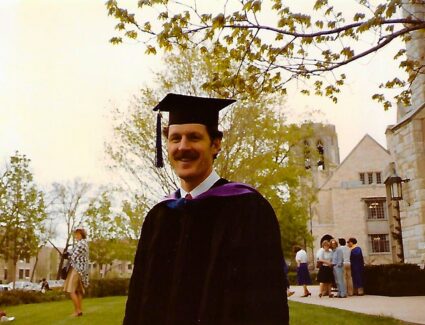
Dr. Comer approached his work as an MAS with curiosity and compassion, a wonderful blending of head and heart. In interviews with candidates, he was a keen communicator, asked good questions, and was not afraid to speak the truth. Rev. Barry Petrucci, chairperson of the Michigan Conference Board of Ordained Ministry, comments, “Mike did not always have easy things for people to hear, but people appreciated his honesty and many times, clergy took advantage of what they learned from him to go and do further work on their own.”
Petrucci also notes how Dr. Comer worked hard to be clear and precise in his language so that candidates understood what he saw in the psychological profile and could take steps to be as healthy as possible. “I find that pastoral in the best of worlds,” he adds.
Sharon Appling, a lay member of the Michigan Conference Board of Ordained Ministry who currently is a Certified Lay Minister serving Embry United Methodist Church in Birmingham, has worked closely with Dr. Comer since she joined the BOM in 2017 and then was assigned to the Candidacy Summit Committee where she first learned about the rigorous assessment process.
Dr. Comer was the MAS who handled Appling’s psychological assessment in 2021 as she was preparing to be a lay minister, so she has experienced Dr. Comer’s gifts from different angles.
She admires Dr. Comer and the spiritual gifts he’s utilized by giving a word of knowledge or wisdom (1 Corinthians 12:8) based on his evaluations: “It’s like being a good pastor of a pastor. You have to know which questions to ask, which responses you can hold in your heart, and which responses need additional professional support for that individual to continue to be constructive in their job.”
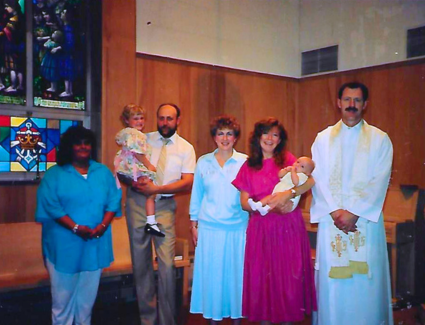
Psychological assessments are like holding up a mirror and helping candidates see themselves and their personal histories honestly and accurately. Then, candidates can better understand how their personality traits compare with highly effective pastors.
Dr. Comer explains, “I say to people, my job is to describe you. It’s not to give you a recommendation and say you should or should not be certified by the dCOM. That’s up to them. What I most often focus on is that given your normal personality traits, and we all have different kinds and different mixtures, and knowing what I know about the pastorate because I’ve done it, what does this set of personality traits mean for you in the pastorate?”
He continues, “But I also see it as helping individuals say, look, here are your strengths. Here are your weaknesses. Lead with your strengths, but do something to shore up your weaknesses. Highly effective people, whether in secular work or ministry, shore up their weaknesses.”
At the end of every report, Dr. Comer always included a section he called “questions for further exploration,” which the person and the district committee were invited to go through together. Often, he highlighted the growing edges that he witnessed in his evaluation.
Dr. Comer’s care for the health and wellness of pastoral candidates is evident. Still, it’s also clear that he cares for the Church as an institution, albeit imperfect, of which he has been a member all his life, and wants to improve the effectiveness of the candidacy process for all involved.
Petrucci respects this commitment to the Church and knows he is respected by others in the Michigan Conference and beyond: “Mike does what he does because he has a pastoral heart and a deep care for the Church. His care for the candidate is specifically about their emotional and psychological health, so his care is less pastoral than therapeutic. But his care for the Church is really the bigger issue.”
Caring for and Protecting the Church
Leading and caring for a congregation is a big task. Although it’s not one person’s sole responsibility, some level of authority is placed in the hands of a pastoral leader, whether clergy or laity. Therefore, churches must do their due diligence as legal entities to screen candidates so that every person is protected and no harm is done. The congregation’s safety is at stake, as is the safety of the community the church is in. Congregations comprise people who live, work, and go to school in living, breathing communities. One unhealthy pastor can seriously affect a community’s health and well-being.
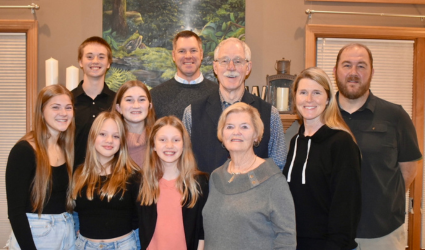
This process is similar to the child protection practices required of congregations. Petrucci explains, “Pastors are getting a high level of trust and authority that could easily be misused if they are not healthy individuals. So, in the same way we want to be careful about who’s working with our children, we want to be very careful about who’s got pastoral authority in a local church so that the entirety of that congregation is healthy.”
One of the tests candidates take is the Minnesota Multiphasic Personality Inventory (MMPI), one of the most widely used psychological tests available that assesses for the presence of abnormal mental or emotional difficulty. Thankfully, according to Dr. Comer, “The vast majority of the people we assess don’t have any serious mental or emotional issues. Occasionally, there is one, but they are very much the exception. But then we also use a test assessing normal personality traits, which assumes the absence of any pathology.”
Petrucci says that Dr. Comer was always good about making sure the BOM saw any red flags that might come up in a psychological profile. It made it easier for the board to ask the candidate questions. “In many instances,” Petrucci says, “we were able to say to them that they need to be in therapeutic care for the next year, for instance, before we approve them to be in the care of a local congregation because we need to be sure that they’re not going to do harm in the congregation.”
Dr. Comer notes that his background in law enforcement affected how he handled assessments. Working for the Michigan State Police made him more skeptical, and he does not view human nature as intrinsically good anymore. “Now I know,” he confesses, “that there really is evil in the world, and evil people can do very bad things and cause immense pain, as a group. Sometimes, I think clergy are naive about that.” Comer is also aware that sometimes people deceive by either purposely changing the facts or leaving out facts.
His experience working alongside law enforcement has benefited him in a few situations as he’s evaluated assessments. He’s encountered a few felonies and other serious charges. In one instance, Dr. Comer discovered some inconsistencies in a candidate’s story and obtained public records showing concern about this candidate’s viability for ministry. In his final report, he recommended further questioning by the dCOM. Dr. Comer then got a phone call from the district superintendent thanking him for protecting the Church. “Had I not had my police background, I wouldn’t have caught that,” says Comer.
Refining the Assessment Tools and Process
Dr. Comer’s training and professional experience gave him other gifts for ministry, including problem-solving skills and expertise in administration, data analysis, and organizational management. These were beneficial in his role as an MAS, as he assisted conference leadership with refining the tools the MASs utilize, including developing a way to score letters of recommendation that candidates received as part of the assessment.
He is still actively involved on the Advisory Committee on Candidacy and Clergy Assessment, which advises the General Board of Higher Education and Ministry on The United Methodist Church’s evaluation process. He keeps abreast of the latest research and trends in inventories and vocational assessments, particularly of those entering professional ministry.
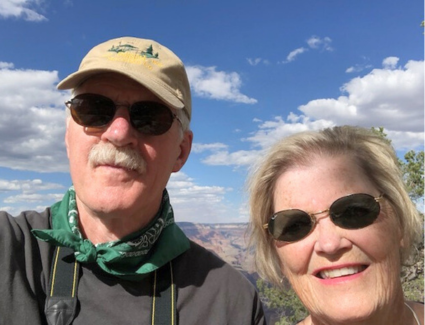
One of the refinements to the assessment process relates to the Michigan Conference’s ongoing commitment to anti-bias, anti-racism work. Appling, an African American serving on the BOM, desired for the assessment process to be more culturally and racially responsive to the needs of the candidates. She says, “Mike has joined me on that journey and has been that professional voice for me.” Petrucci echoes this statement: “Mike has been mindful of our need to have culturally appropriate inventories and inventories in other languages as the makeup of our conference and the denomination changes. So he’s been an essential part of our leadership team in keeping us mindful of the changes we need to make.”
Appling also notes that they have developed a more diverse MAS team to share the workload, another positive change. Currently, three MASs serve the conference.
Dr. Comer’s problem-solving skills were also valuable when the assessment process was brought in-house in 2017. Because of restructuring, the General Board of Higher Education and Ministry determined they would no longer orchestrate the psychological assessments. According to Appling, the Michigan Conference had to assume that responsibility. She explains, “Each conference had to set up a process by which they would administer the psychological assessments, analyze them, and provide summaries to the BOM so that the BOM would have the data necessary to handle the potential.” Dr. Comer was instrumental in helping the conference take on this responsibility and ensure a smooth implementation.
During the COVID-19 pandemic, when meeting in person for assessments was not possible, Dr. Comer assisted the BOM with ensuring that one of the key assessments given virtually provided results that were just as reliable as when taken with pen and paper.
As Dr. Comer has entered retirement from his work as an MAS, members of the Michigan Conference Board of Ordained Ministry and his colleagues in ministry have expressed gratitude for his many years of service on behalf of the Church.
Rev. Barry Petrucci says, “I highly respect Mike, and I know that he’s highly respected by others. He has an exceptional level of knowledge and clarity on this matter, and it serves the individuals and the Church extraordinarily well.”
Sharon Appling, in her comments before the body of clergy at the 2023 Michigan Annual Conference, thanked Dr. Comer for his witness and example. She noted his drive, devotion, and commitment to the assessment process and how that has inspired her to volunteer her time and energy to serve as a member of the Michigan Conference Board of Ordained Ministry.
Dr. Michael Comer’s work as a Ministerial Assessment Specialist has been a gift to hundreds of ministerial candidates and churches. It was his vocational ministry working with the Michigan Conference of The United Methodist Church. Dr. Comer reflects on 30 years of service: “I feel like I’ve had an impact on the future of the Church, hopefully in a positive direction.”
Last Updated on April 23, 2024

